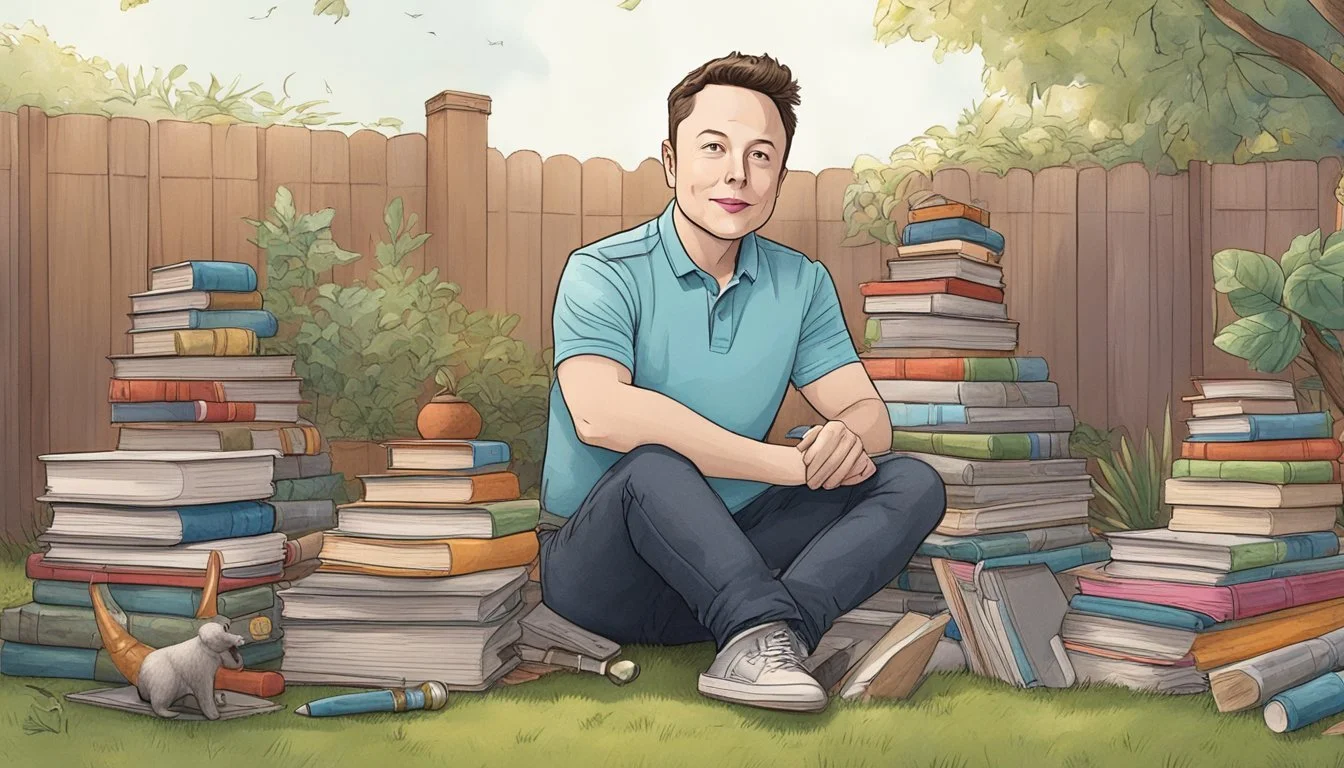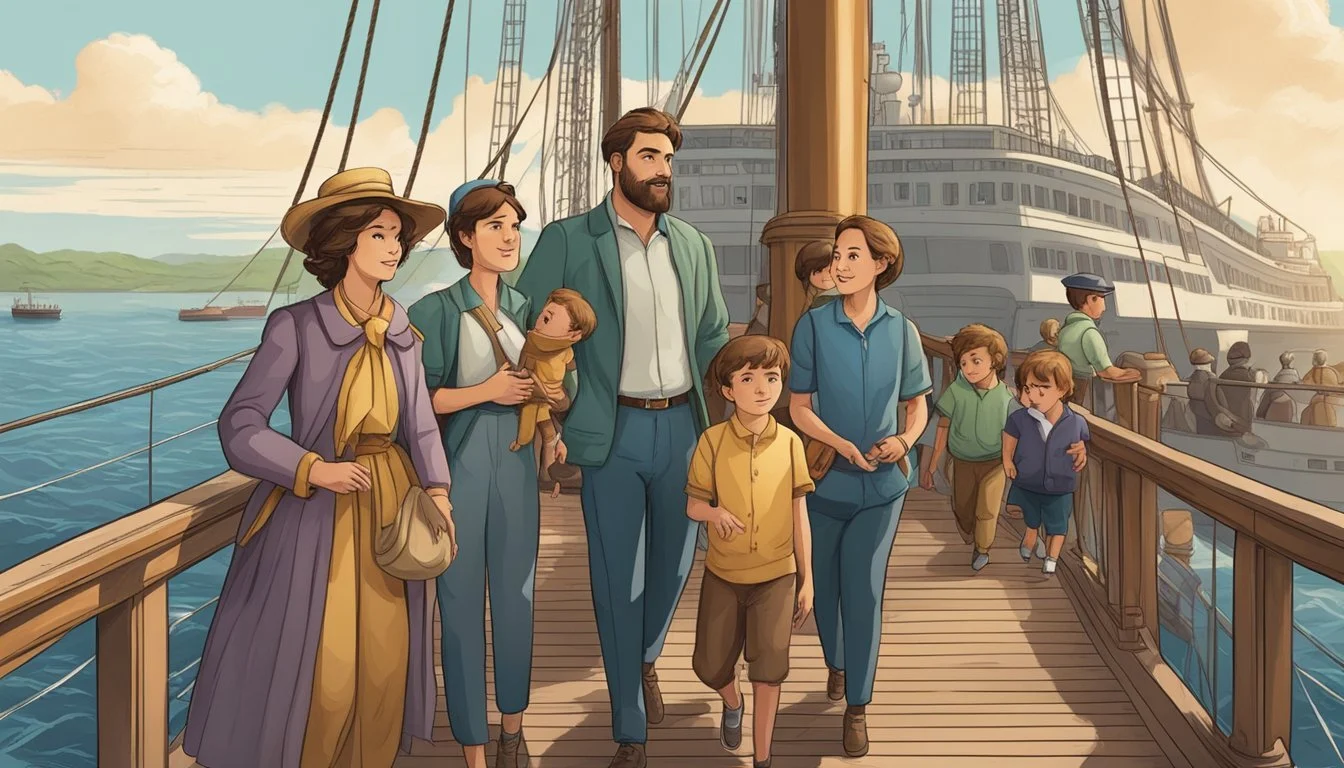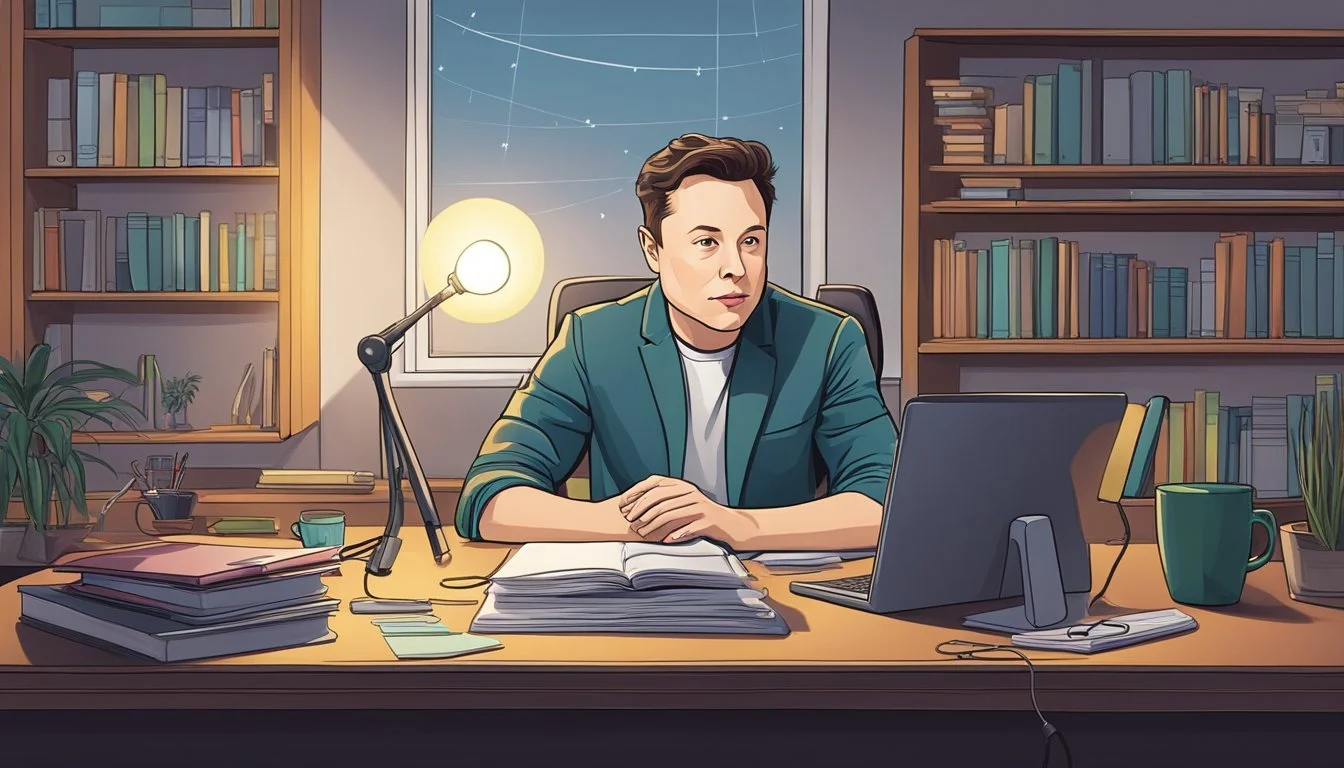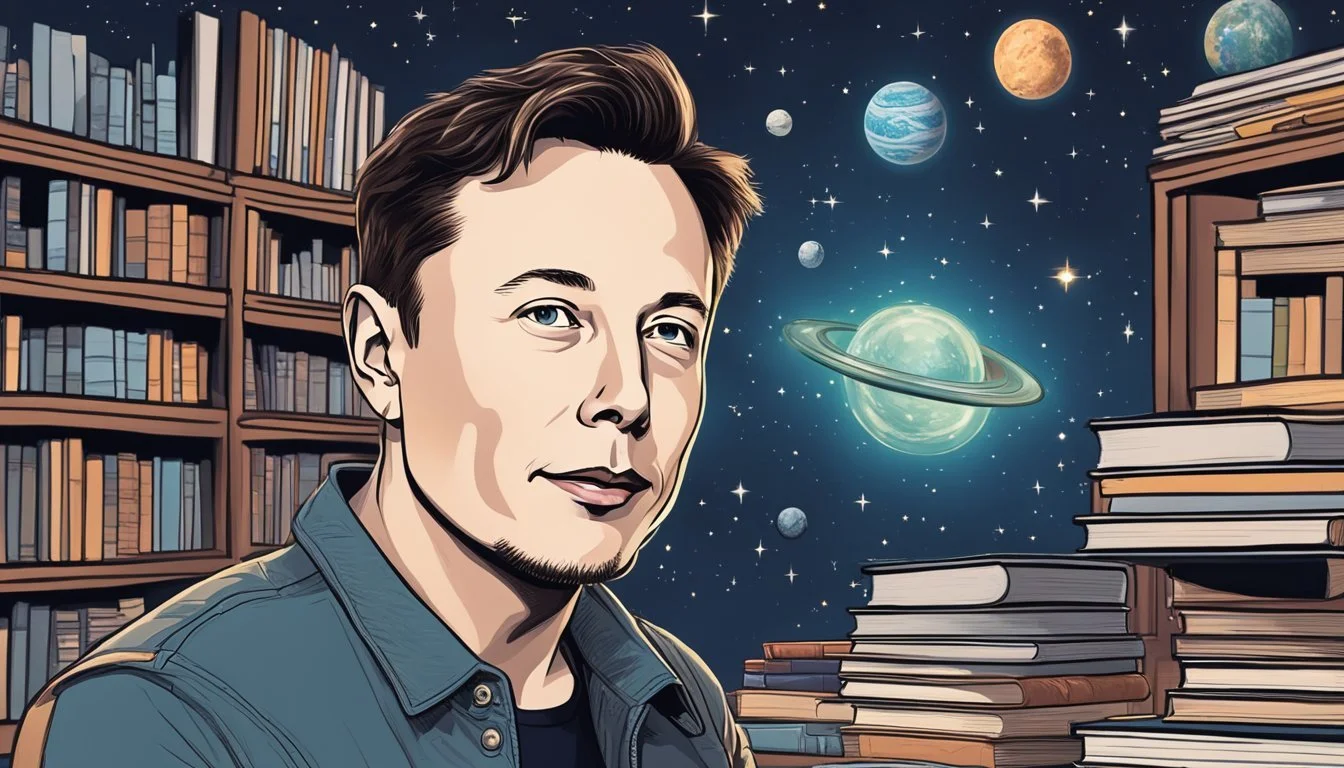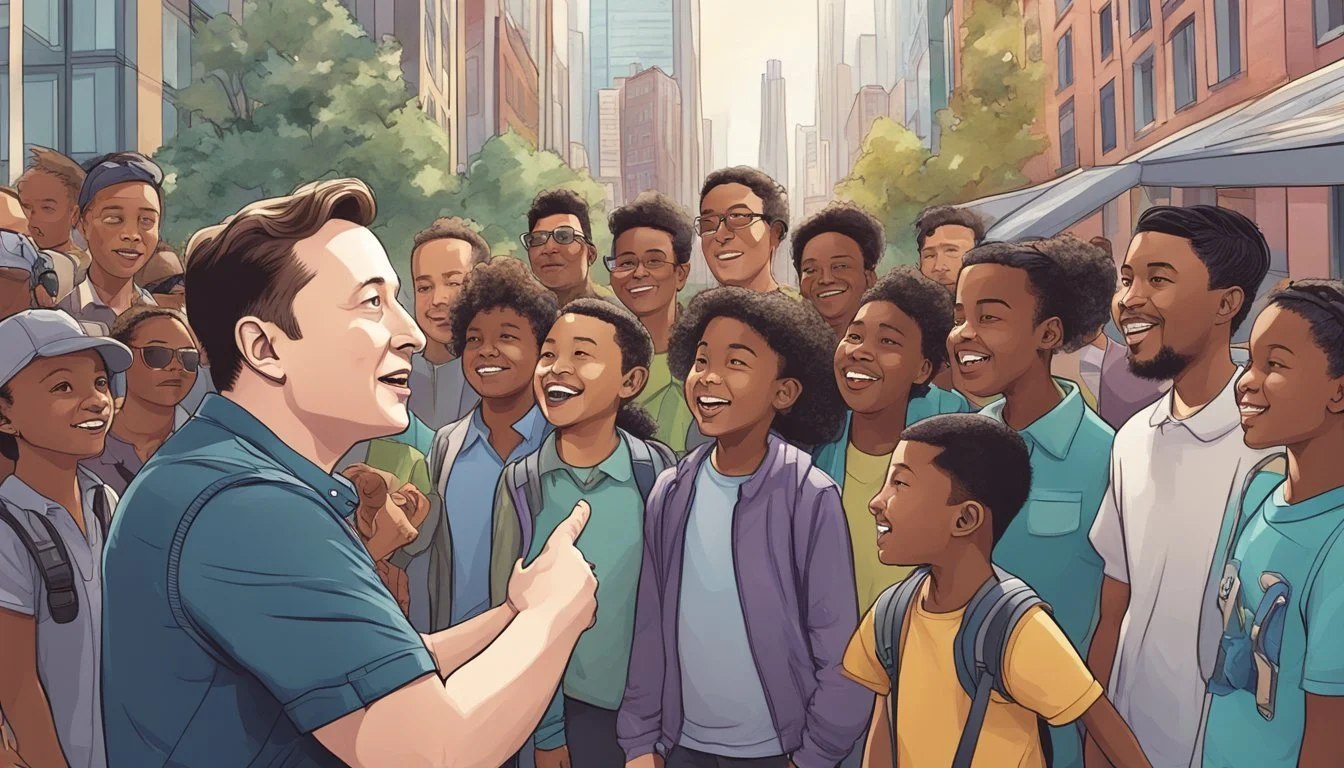From Bullied Bookworm to Tech Titan: The Shocking Secrets of Musk's Tumultuous Childhood!
Elon Musk's childhood laid the foundation for his future as a groundbreaking entrepreneur. Born in Pretoria, South Africa in 1971, Musk displayed exceptional intelligence and an insatiable curiosity from an early age. His voracious appetite for knowledge led him to consume entire encyclopedias after exhausting the offerings of local libraries.
Despite facing bullying at school, Musk's academic prowess and dedication to learning allowed him to excel. He developed a deep interest in computers and technology, spending countless hours exploring these fields. This early fascination would later fuel his innovative ventures in electric vehicles, space exploration, and renewable energy.
Musk's childhood experiences as a quiet, introspective child who felt like an outsider shaped his unique perspective on the world. His ability to think differently and challenge conventional wisdom would become hallmarks of his approach to business and technology in adulthood. These early years set the stage for Musk's journey to become one of the most influential entrepreneurs of the 21st century.
Early Beginnings in South Africa
Elon Musk's formative years in South Africa laid the foundation for his future endeavors. His upbringing in Pretoria shaped his interests and skills from an early age.
Birth and Family Background
Elon Reeve Musk was born on June 28, 1971, in Pretoria, South Africa. His parents were Maye Musk, a model and dietitian, and Errol Musk, an electromechanical engineer.
Elon grew up with his younger brother Kimbal and sister Tosca. The family lived in a comfortable middle-class environment in Pretoria.
His parents divorced when Elon was 10 years old, marking a significant change in his childhood circumstances.
Childhood Interests and Activities
From a young age, Elon displayed an intense curiosity and aptitude for technology. He taught himself computer programming at the age of 10.
Musk was an avid reader, often spending hours immersed in books. He particularly enjoyed science fiction and encyclopedias.
Despite his intellectual pursuits, Elon faced challenges socially. He was often described as a quiet, introverted child who struggled to fit in with his peers.
His early interests foreshadowed his future career path in technology and innovation.
Education in Pretoria
Musk attended Waterkloof House Preparatory School and later Bryanston High School in Johannesburg. He completed his secondary education at Pretoria Boys High School.
In school, Elon's academic performance was strong, particularly in subjects like physics and computer science.
He participated in extracurricular activities, including computer club and debate team.
Musk's education in Pretoria provided him with a solid foundation in science and technology, which would prove crucial in his future endeavors.
At 17, Musk left South Africa to pursue higher education in Canada, marking the end of his formative years in his home country.
Development of Technological Proclivity
Elon Musk's childhood was marked by an early and intense fascination with technology. His innate curiosity and drive to understand how things worked laid the groundwork for his future endeavors in the tech world.
Fascination with Computing
At a young age, Musk displayed an exceptional aptitude for computers and programming. He received his first computer, a Commodore VIC-20, at the age of 10. Musk quickly taught himself programming, spending hours poring over the machine's manual.
Within just two days, he had mastered BASIC programming. This early exposure to computing ignited a passion that would shape his future career trajectory.
Musk's voracious appetite for knowledge extended beyond computers. He devoured books on various subjects, including technology and innovation, often reading for up to 10 hours a day.
Early Encounters with Entrepreneurship
Musk's technological interests soon intersected with his entrepreneurial spirit. At the age of 12, he created his first software product - a space-themed game called Blastar.
He sold the game's source code to a computer magazine for approximately $500, marking his first foray into the world of tech entrepreneurship.
This early success reinforced Musk's belief in the potential of technology to create value. It also demonstrated his ability to transform his interests into tangible products.
Musk's childhood experiences with computing and entrepreneurship laid the foundation for his future innovative ventures in various technological fields.
Adversity and Resilience
Elon Musk's childhood was marked by significant challenges that shaped his character and drive. He faced relentless bullying at school but found solace and strength in pursuing his passions.
Overcoming Bullying
Musk endured severe bullying during his school years in Pretoria, South Africa. Classmates targeted him for his intelligence and introverted nature. In one incident, a group of boys pushed him down a flight of stairs, resulting in hospitalization.
To defend himself, Musk took up karate and wrestling. These martial arts not only provided physical protection but also boosted his confidence.
The bullying experiences, though traumatic, fostered resilience in Musk. He learned to stand up for himself and developed a thick skin against criticism - traits that would serve him well in his future entrepreneurial endeavors.
Pursuing Personal Passions
Despite the social challenges, Musk found refuge in his interests. He immersed himself in reading and technology from a young age. At 10, he got his first computer and taught himself programming.
Musk's passion for science fiction and technology provided an escape from his difficult reality. He spent countless hours coding and exploring new ideas.
This early dedication to his interests laid the foundation for his future innovations. Musk's ability to focus intensely on his passions, regardless of external pressures, became a defining characteristic of his approach to business and innovation.
Immigration to North America
Elon Musk's journey to North America began as a teenager, driven by ambition and opportunity. His path involved obtaining Canadian citizenship and later transitioning to the United States for higher education and entrepreneurship.
Acquisition of Canadian Citizenship
Elon Musk acquired Canadian citizenship through his mother, Maye Musk, who was born in Canada. At age 17, he left South Africa and moved to Canada with limited resources. Musk arrived with $2,000, a backpack, and a suitcase full of books.
He initially lived with relatives in Ontario. This Canadian citizenship proved crucial for Musk's future plans, as it provided an easier route to eventually enter the United States.
Transition to the United States
In 1992, Musk transferred from Queen's University in Ontario to the University of Pennsylvania (UPenn) in the United States. This move marked his entry into the U.S. as an international student.
At UPenn, Musk pursued dual bachelor's degrees in physics and economics. His transition to the U.S. set the stage for his future entrepreneurial endeavors in Silicon Valley.
Musk's immigration status evolved over time. He became a U.S. permanent resident and eventually gained U.S. citizenship in 2002, a decade after his initial arrival in the country.
Education and Business Foundations
Elon Musk's education and early business ventures laid the groundwork for his future success. His university studies in physics and economics, followed by his entrepreneurial endeavors with Zip2 and X.com, set him on a path to becoming a tech industry leader.
University Years
Musk pursued higher education at the University of Pennsylvania, earning dual bachelor's degrees in physics and economics. His physics studies provided a strong scientific foundation, while economics honed his business acumen. Despite being accepted into a Ph.D. program at Stanford University, Musk left after just two days to pursue entrepreneurial opportunities in the emerging Internet boom.
During his university years, Musk demonstrated his innovative thinking and work ethic. He wrote business plans and conducted research on emerging technologies. These experiences shaped his future approach to business and technology development.
Entrepreneurial Launch with Zip2 and X.com
In 1995, Musk co-founded Zip2, a web software company providing business directories and maps for newspapers. This venture showcased his ability to identify market needs and develop practical solutions. Zip2 was sold to Compaq in 1999 for nearly $300 million.
Following Zip2's success, Musk founded X.com, an online financial services and payment company. X.com later merged with Confinity to form PayPal. This venture demonstrated Musk's vision for revolutionizing online transactions. eBay acquired PayPal in 2002 for $1.5 billion.
These early successes provided Musk with the capital and experience to pursue more ambitious projects in the future.
Formation of Key Ventures
Elon Musk's entrepreneurial spirit led him to establish groundbreaking companies that have reshaped multiple industries. His ventures in aerospace, electric vehicles, and renewable energy demonstrate his vision for a sustainable future.
SpaceX: A Leap into Aerospace
In 2002, Musk founded Space Exploration Technologies Corp., or SpaceX. The company aimed to reduce space transportation costs and enable the colonization of Mars. SpaceX developed reusable rockets, a revolutionary concept in the aerospace industry.
The Falcon 1 became the first privately funded liquid-fueled rocket to reach orbit in 2008. This success paved the way for larger projects like the Falcon 9 and Falcon Heavy rockets.
SpaceX achieved another milestone in 2012 when its Dragon spacecraft docked with the International Space Station. This marked the first time a private company had sent a spacecraft to the ISS.
Tesla Motors: Revolutionizing Transportation
Musk joined Tesla Motors in 2004, investing in the company and becoming its chairman. He later took on the role of CEO in 2008. Tesla's mission was to accelerate the world's transition to sustainable energy.
The company's first vehicle, the Roadster, launched in 2008. It was the first production automobile to use lithium-ion battery cells and travel more than 200 miles per charge.
Tesla expanded its lineup with the Model S sedan in 2012, followed by the Model X SUV and the more affordable Model 3. These vehicles helped popularize electric cars and pushed the automotive industry towards electrification.
SolarCity and Renewable Energy
In 2006, Musk provided the initial concept and financial capital for SolarCity, which was founded by his cousins Lyndon and Peter Rive. The company aimed to combat global warming and reduce fossil fuel dependence.
SolarCity quickly became the largest solar energy services provider in the United States. It offered solar power systems for homes, businesses, and government organizations.
In 2016, Tesla acquired SolarCity to create a vertically integrated sustainable energy company. This merger combined solar power generation with energy storage solutions, furthering Musk's vision of a sustainable energy ecosystem.
Expanding Frontiers
Elon Musk's innovative spirit expanded beyond electric vehicles and space exploration. He envisioned revolutionary solutions for transportation and human-computer interfaces, pushing technological boundaries.
The Vision of The Boring Company
The Boring Company aims to revolutionize urban transportation through underground tunnels. Musk founded it in 2016 to address traffic congestion in major cities. The company's goal is to create a network of high-speed tunnels for electric vehicles and pedestrians.
The Boring Company has already completed projects in Las Vegas and is working on others in various cities. Their tunnel-boring machines are designed to be faster and more efficient than traditional methods.
Creating Hyperloop
Hyperloop is Musk's concept for ultra-high-speed transportation. It envisions pods traveling through low-pressure tubes at speeds up to 760 mph (1,220 km/h). Musk introduced the idea in a 2013 white paper, sparking global interest.
Several companies and universities are now developing Hyperloop technology. While still in the experimental stage, successful tests have been conducted. The system promises to revolutionize long-distance travel, potentially connecting cities like San Francisco and Los Angeles in under 30 minutes.
Neuralink: Merging Brain and Technology
Neuralink, founded by Musk in 2016, focuses on developing brain-computer interfaces. The company aims to create implantable brain-machine interfaces to treat neurological conditions and enhance human cognitive abilities.
Neuralink's technology involves tiny electrodes implanted in the brain to read and potentially stimulate neural activity. Early applications target medical treatments for conditions like paralysis and blindness.
The long-term vision includes enhancing human intelligence and enabling direct communication with artificial intelligence systems. While controversial, Neuralink's work pushes the boundaries of neurotechnology and AI integration.
Influence and Achievements
Elon Musk's childhood experiences and early accomplishments laid the foundation for his future success. His innovative spirit and technological prowess emerged at a young age, shaping his trajectory.
Net Worth and Wealth
Elon Musk's entrepreneurial journey began in childhood with the creation of Blastar, a video game he sold for $500 at age 12. This early success foreshadowed his future as a tech mogul. Musk's net worth has since skyrocketed, making him one of the wealthiest individuals globally.
His financial success stems from founding and leading companies like PayPal, Tesla, and SpaceX. These ventures have not only increased his personal wealth but also revolutionized industries. Musk's ability to identify and capitalize on emerging technologies has been pivotal in building his fortune.
Culture and Media Perceptions
Musk's childhood experiences, including bullying and his intense focus on books and technology, have contributed to his public image. The media often portrays him as a visionary entrepreneur with a complex personality. His early life story, detailed in Ashlee Vance's biography, has become part of the Musk mythos.
His involvement in projects like OpenAI has further cemented his reputation as a forward-thinking innovator. The public's fascination with Musk's journey from a shy, bookish child to a influential tech leader continues to shape cultural narratives about success and innovation.
Contemporary Endeavors and Public Interaction
Elon Musk's recent activities extend far beyond his companies, encompassing government relations, cryptocurrency involvement, and a prominent social media presence. His actions in these spheres have sparked both admiration and controversy.
Interactions with Government and Regulations
Musk's relationship with government entities has been complex. He has clashed with regulatory bodies like the SEC over his Twitter posts about Tesla. In 2018, he settled fraud charges with the SEC, resulting in his stepping down as Tesla's chairman.
Musk has also engaged with the Department of Government Efficiency, advocating for streamlined processes in areas like environmental reviews for infrastructure projects. His companies have benefited from government contracts, particularly SpaceX's work with NASA.
He has criticized some regulations as hindering innovation, especially in the automotive and space industries. This stance has led to both support and scrutiny from politicians across the spectrum.
Involvement in Cryptocurrency
Musk's influence in the cryptocurrency world is significant. He has been a vocal supporter of Dogecoin, often tweeting about the meme-based cryptocurrency. His tweets have caused dramatic price fluctuations in Dogecoin and other cryptocurrencies.
Tesla briefly accepted Bitcoin as payment for vehicles in 2021 before suspending the practice due to environmental concerns. This decision highlighted Musk's power to impact crypto markets.
His statements on cryptocurrency have drawn attention from financial regulators. Critics argue his tweets manipulate markets, while supporters see him as a champion of financial innovation.
Presence on Social Media Platforms
Twitter is Musk's primary social media platform. He uses it to share updates about his companies, personal opinions, and memes. His tweets often generate headlines and influence stock prices.
In 2022, Musk acquired Twitter in a $44 billion deal. This move thrust him into debates about free speech and content moderation on social media platforms.
His Twitter usage has led to legal issues, including the aforementioned SEC settlement. Musk's direct communication style on the platform has built a large, engaged follower base but also sparked controversies.

